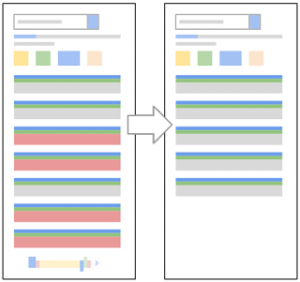On Wednesday the 14th of October Google are no longer recommending the AJAX crawling proposal we made back in 2009 (http://googlewebmastercentral.blogspot.co.uk/2009/10/proposal-for-making-ajax-crawlable.html)
They openly advise now to use #! in URLs over ?_escaped_fragment_= .
“Times have changed. Today, as long as you’re not blocking Googlebot from crawling your JavaScript or CSS files, we are generally able to render and understand your web pages like modern browsers. To reflect this improvement, we recently updated our technical Webmaster Guidelines to recommend against disallowing Googlebot from crawling your site’s CSS or JS files.”
Questions and answers
Q: My site currently follows your recommendation and supports _escaped_fragment_. Would my site stop getting indexed now that you’ve deprecated your recommendation?
A: No, the site would still be indexed. In general, however, we recommend you implement industry best practices when you’re making the next update for your site. Instead of the _escaped_fragment_ URLs, we’ll generally crawl, render, and index the #! URLs.
Q: Is moving away from the AJAX crawling proposal to industry best practices considered a site move? Do I need to implement redirects?
A: If your current setup is working fine, you should not have to immediately change anything. If you’re building a new site or restructuring an already existing site, simply avoid introducing _escaped_fragment_ urls. .
Q: I use a JavaScript framework and my webserver serves a pre-rendered page. Is that still ok?
A: In general, websites shouldn’t pre-render pages only for Google — we expect that you might pre-render pages for performance benefits for users and that you would follow progressive enhancement guidelines. If you pre-render pages, make sure that the content served to Googlebot matches the user’s experience, both how it looks and how it interacts. Serving Googlebot different content than a normal user would see is considered cloaking, and would be against our Webmaster Guidelines.
Source: http://googlewebmastercentral.blogspot.co.uk/2015/10/deprecating-our-ajax-crawling-scheme.html




